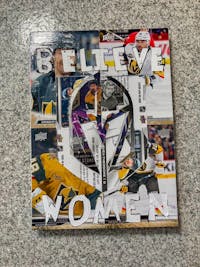Dylan returns from singing hiatus
The predominant reaction to my decision to see three Bob Dylan shows in three nights was, "Why?" Why spend so much money, time and energy to see anybody, let alone an old man whose contemporary work is only beginning to creep from beneath the shadows of his unprecedented early years? Well, the shows were at Avalon last week from Wednesday to Friday. Avalon holds just over 2,000 people and usually is a venue for less-established acts, but this was an opportunity to be as close as possible to the man and to leave behind the stadium shows that I have come to hate. His summer performances were amazing as well, earning my respect for him as a performer. I felt, and still feel, great about the decision.
Each show had its own personality and charm. Dylan played very different sets each night, making it worthwhile to the many repeat customers. The second show on Thursday was my favorite. It had a mood that just set it apart, plus a stellar set list. For the past year or so, Dylan's been doing piano duty, letting his incredibly talented guitarists handle the strings. Also, he added Little Feat's drummer, Richie Hayward, to the line-up, which enhanced the many songs with two drummers. It may have been more a case of giving a friend something to do, instead of actually needing a second drummer, but there was no adverse effect on the music.
For the occasional listener, many of the songs would have not been recognized. Dylan played two songs from John Wesley Harding, an album most famous for his acoustic version of "All Along The Watchtower," which was then all but forgotten with Hendrix' superior rendition.
"Drifter's Escape" and "I'll Be Your Baby Tonight" pleased the crowd and flowed into "Tweedle Dee and Tweedle Dum," off his most recent album, Love and Theft. So far, so good. Then, Dylan proceeded to hit the audience over the head with some of his best songs. "Blind Willie McTell," an outtake that Dylan was never satisfied with in its recorded form, is one of the songs most desired to hear live, and is my personal favorite. His voice, raspy but clear in that paradoxical world in which blues singers reside, threw out each word as if it were a meditation on the state of not just the past but the present and our future.
He followed this with "It's Alright Ma (I'm Only Bleeding)," one of his most quoted songs, with lines like "Money doesn't talk, it swears," and "Even the President of the United States must sometimes have to stand naked." He delivered this with the same intensity, not letting up for one syllable.
"Positively 4th Street," "Most Likely You Go Your Way (And I'll Go Mine)" and "Ballad of a Thin Man," songs from one of his many peak periods where the world hung on his every word. The set then shifted to soft and beautiful songs, with the violin-tinged "Floater," and "Girl of the North Country" sandwiching the heady locomotion of "Highway 61." Before I knew it, we were in the midst of the encore, ending with "Like a Rolling Stone," and the pounding, inspiring "Watchtower," electric but decidedly Dylanesque. I heard it three times and it was still something to behold.
I think a lot of people forget how it was in the Dylan era. Beatlemania was a massive, worldwide campaign born out of bubblegum pop, teenage idolization and commercialization. Dylan, on the other hand, was getting the same attention and the same adoration for his mind, and from the teens' parents no less. He was the poet, the voice, by which everyone else was compared. No one sat in a voting booth wondering what John Lennon would do, at least not in those years, but Bob Dylan's politics were surely on the brain. Admittedly, he had some weak albums in the 80s and 90s, though Oh Mercy is still one of the strongest records from the late 80s. Now, he is in top form, winning Grammys and Oscars. He never won awards back when he was the "unwashed phenomenon," telling those who cared to listen not what to think but how to.
A teacher asked me why I liked him seeing as he isn't of my generation and I answered, "Dylan's every generation," and he proved it once again, delivering nearly two hours of music that makes you want to dance, think, and most of all, feel. Forty years and counting, he is still at the top, following only his sense of good and bad and letting anyone who agrees come along for the ride.



Please note All comments are eligible for publication in The Justice.